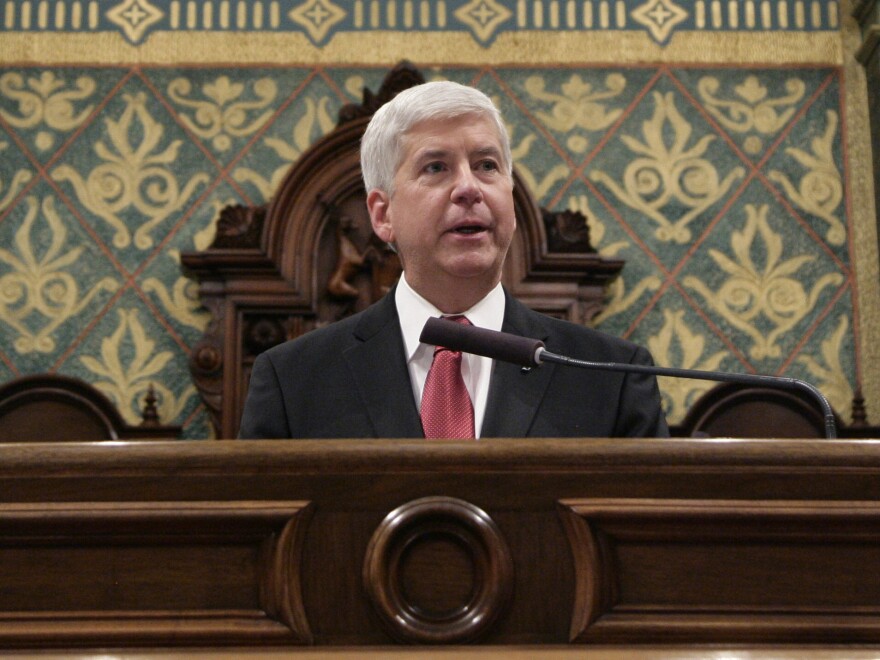High levels of lead in their drinking water have Flint, Mich., residents relying on cases of bottled water for just about everything. So it may come as no surprise that thousands of them have stopped paying their water bills.
Lynna Kaucheck of the not-for-profit group Food and Water Watch delivered 21,000 signatures to the Flint mayor's office last week calling for a moratorium on drinking water bills.
"All of this is a lot for people to handle, and enough is enough," she said. "Flint residents need relief."

More than a quarter of Flint water customers stopped paying their water bills last fall after it was confirmed that their drinking water was contaminated with lead.
That's cost the city millions of dollars. As a result, the city may not have enough money in the future to pay for repairing broken water mains and replacing sewer lines.
Gov. Rick Snyder, R-Mich., who has come under withering criticism for the state's role in the crisis, agrees that Flint residents shouldn't have to pay for tainted drinking water. He is asking the state Legislature to give $30 million to Flint to cover the cost of water. But he says residents should still pay the part of their bill that supports the water and sewer system.
The governor's plan would provide credit for water bills dating back to April 2014, when the city's tap water source was switched to the Flint River. It was the failure to properly treat the river water that damaged the city's pipes, which continue to leach lead into the drinking water.
Snyder says he and city officials still have to figure out exactly how to credit Flint water customers for the tainted water they already paid for.
A federal class-action lawsuit on behalf of Flint water customers is seeking $150 million in refunds and damages.
Attorney Billy Murphy says the lawsuit he filed this week will compensate Flint residents for paying for water that he calls "incredibly dangerous."
"The city, the state, the local government officials, the governor, all know that this was catastrophically wrong," Murphy said. "The citizens should not be made to add insult to injury by having to pay for dangerous, dirty, non-drinkable, non-usable water."
Flint residents still receive a monthly bill for water they can't drink, at rates about eight times the national average.
Copyright 2016 Michigan Radio


